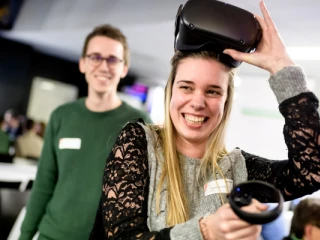
How mass customization redefines the nature of your business
The words ‘mass’ and ‘customization’ may seem incompatible at first glance, but new technologies are redefining what’s possible in the realm of Industry 4.0. We asked delaware experts Merijn Versyp, mass customization expert, and Koen De Vleeschauwer, operational and process excellence lead, to shed more light on what mass customization is, what it can do, and what to keep in mind as a business leader.



